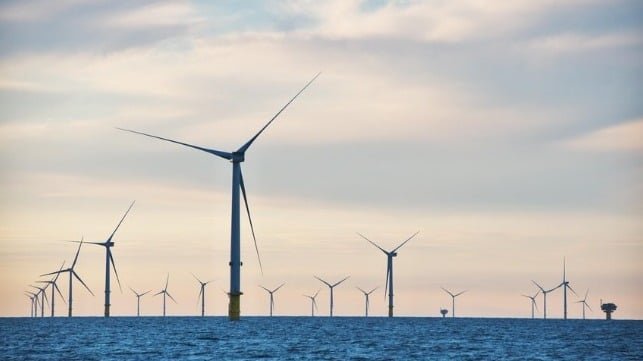The Future of Offshore Wind Energy in the UK
As the UK faces the challenge of meeting the government’s Clean Power 2030 targets, the offshore energy industry trade association OEUK warns of potential obstacles that could hinder progress. Issues such as price inflation, capital cost, and supply chain competitiveness need to be addressed to ensure the UK stays on course towards a cleaner energy future.
In 2024, the National Energy System Operator (NESO) laid out the Clean Power 2030 (CP30) roadmap, aiming to eliminate emissions from electricity generation and transition the heating, transport, and industry sectors to rely on electricity. The UK has the potential to become a major exporter of wind energy, with offshore wind playing a crucial role in achieving this goal.
Currently, wind power accounts for a significant portion of the UK’s energy mix, with offshore wind contributing 17.2% of total electricity generation in 2024. To meet the government’s target of 43 to 51 GW of installed offshore wind capacity by 2030, substantial private investment of £15 billion annually will be required.
Challenges and Recommendations
OEUK emphasizes the importance of the upcoming Contract for Difference auction in Allocation Round 7 (AR7) to secure renewable energy procurement and maintain momentum towards CP30. The association calls for ambitious targets in AR7 to clear a record 8.4GW of offshore wind capacity.
Furthermore, timely delivery of transmission infrastructure is crucial for accommodating the growth of offshore wind energy. OEUK estimates that a £58 billion investment in grid infrastructure will be necessary to support 50 GW of offshore wind capacity by 2030.
Interconnectivity is also highlighted as a cost-saving measure, with a proposed North Sea integrated grid potentially saving £37 billion per year and reducing wholesale prices. An additional £65 billion investment in UK offshore wind over the next five years is recommended to drive growth and transformation in the sector.
Sustainable Energy Mix
While prioritizing homegrown energy sources, OEUK acknowledges the role of gas-fired power generation in balancing the grid. The association advocates for the gradual adoption of gas with carbon capture and storage technology, paving the way for a transition to hydrogen-fueled power generation in the future.
Overall, OEUK’s recommendations underscore the need for strategic investments, robust infrastructure development, and a diverse energy mix to propel the UK towards a sustainable and prosperous energy future.

